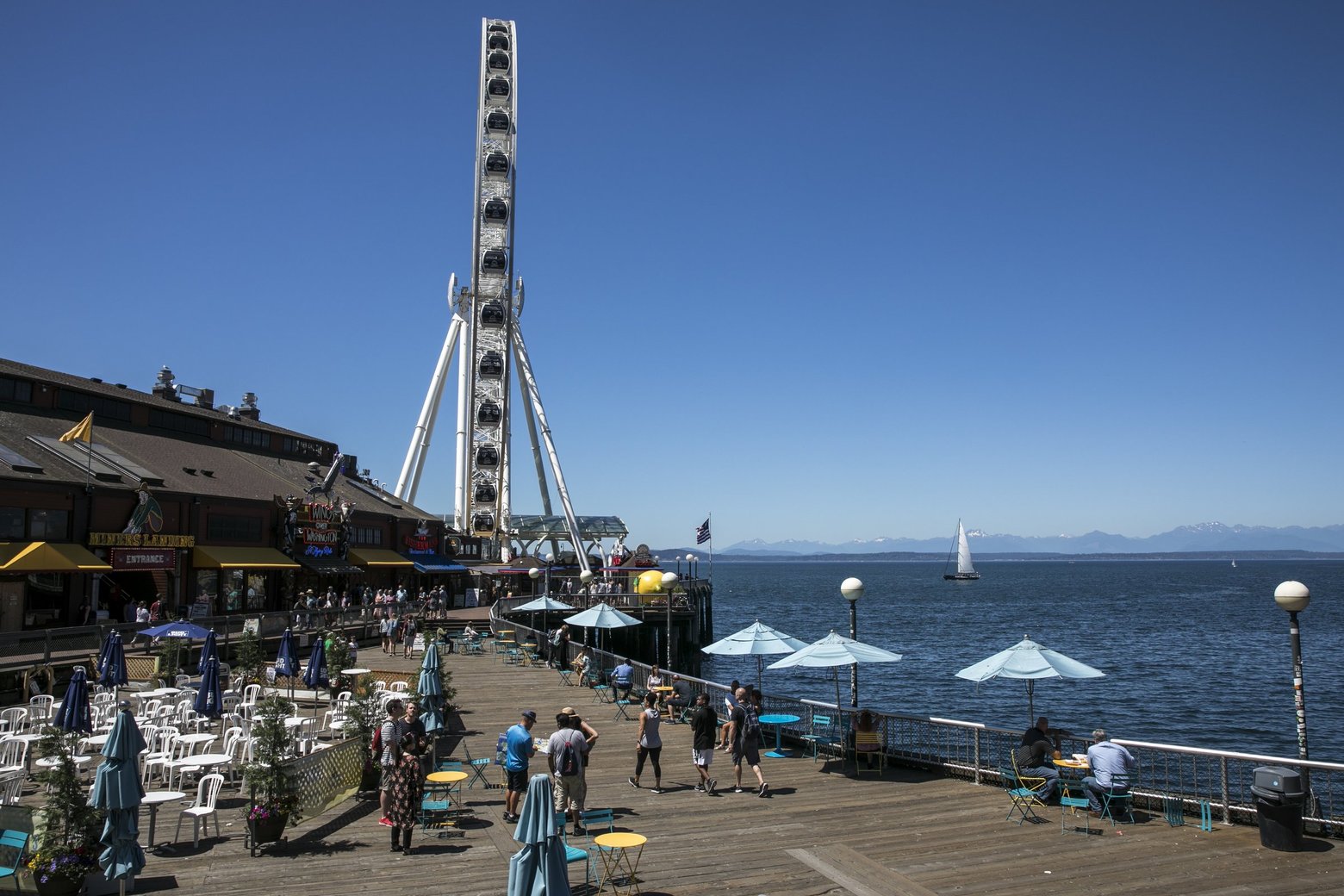News
Seattle Delays $200M Tax on Downtown Property Owners as Waterfront Talks Continue
Posted on

This piece was originally published by the The Seattle Times on Dec. 10, 2018. Image Credit: Seattle Times
Mayor Jenny Durkan’s administration hoped to pass legislation by the end of the year that would create a local improvement district (LID) for long-anticipated improvements to the waterfront.
Seattle officials have delayed action until next year on taxing downtown-property owners as much as $200 million to help pay for a new waterfront park and promenade, along with a new pedestrian connection to Pike Place Market.
Until recently, Mayor Jenny Durkan’s administration hoped to pass legislation by the end of the year that would create a local improvement district (LID) for the long-anticipated improvements.
Intent on using the LID to help remake the waterfront after the demolition of the Alaskan Way Viaduct, the administration had planned to send the legislation to the City Council by late November.
But officials have been unable to wrap up negotiations with property owners who want Seattle to dramatically reduce the $200 million proposed size of the tax and to make commitments related to the maintenance and operation of the waterfront.
he property owners have serious leverage because protest letters from those representing at least 60 percent of the LID money would allow them to block the legislation. The LID would stretch from the former Safeco Field to Denny Way and from Elliott Bay to Interstate 5.
The Durkan administration’s plan now is to submit the legislation to the council for consideration by early January, said Marshall Foster, Office of the Waterfront director. “We are still in discussions on the LID,” he said in an email last week.
It’s unclear to what extent the council would be bound by whatever the property owners and the Durkan administration agree.
“The council will get their day in the sun to work on it,” said Chelsea Kellogg, a spokeswoman for the mayor. “The public will get another opportunity to make their voice heard.”
Authorized by state law, LIDs allow cities to raise money for infrastructure projects by assessing nearby property owners who stand to benefit through property-value increases. The property owners included in a LID pay a percentage of their anticipated “special benefits.” Those closer to a project pay more, based on their larger anticipated benefits.
Under Seattle’s waterfront LID plan, as now proposed, the typical condominium owner would pay $2,400 and the typical commercial-property owner would pay $7,400. The median charge per rental apartment would be $1,300, with landlords choosing how much to pass on to tenants.
As of October, property owners representing about 48 percent of the money had filed protests, accounting for more than 1,000 properties. Now the percentage is 52 percent, Kellogg said, with dozens more protests filed, according to city records.
Politically powerful land-use attorney Jack McCullough has been representing certain property owners in talks with the city, and some condo owners in October said the city had tentatively agreed to lower the LID assessment to $160 million.
In a more recent meeting with property owners, McCullough said there would be no council action on the LID until 2019, said Mary Moreno, a board member at the Waterfront Landings condominium complex on Alaskan Way. McCullough didn’t return requests for comment.
Moreno is opposed to the LID because she doesn’t think her complex will benefit from the new waterfront, including a new Alaskan Way and landing where the Seattle Aquarium intends to build a new pavilion with a shark exhibit. she said.
“We’re going to have more traffic and less view,” she said. “I would just love to kill the LID.”
Condo owners like Moreno aren’t in the driver’s seat because commercial properties account for 87.5 percent of the money that would be raised by the LID, according to the Durkan administration.
Many commercial-property owners want to see the improvements made, their representatives have said, as long as the new public space is strictly cleaned and policed.
“We know negotiations with property owners and the city continue and we hope for a positive outcome,” Downtown Seattle Association President Jon Scholes said in an emailed statement. “We need to make sure we get this project right.”